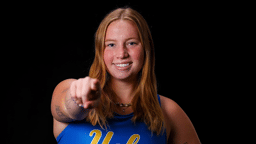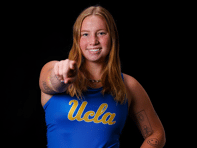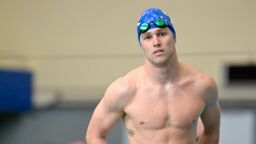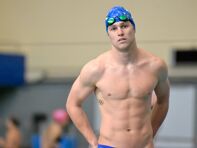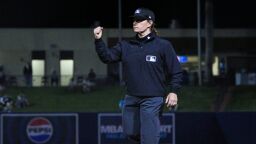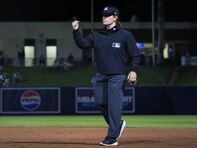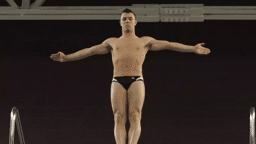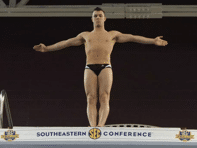I have always been a soccer player, and I know now that I will forever remain a soccer player.
But there was a time when I prepared to lose that identity.
My issues began when, as a junior in high school, I started to secretly seek out any source of over-the-counter and black-market swap-meet medication I could find to treat my gender dysphoria. I knew I wasn’t supposed to be developing into a man, and I tried everything I could to stop it from happening.
Off the field, I became a target for some of the boys and girls at school. It was normal day-to-day life to be a target of harassment and threats of violence. If I wasn’t being called a “faggot,” I was being made the butt of jokes for my Hispanic last name. Other kids got a kick out of turning “Del Rosario” into “Del Taco,” or just going for the blatantly racist “beaner.”
Soccer became my escape. I was no longer a “faggot,” I was only a soccer player for the two hours I spent every day after school on the field.
Unfortunately, the medications began to affect my ability to develop muscle and compete at the same level as my male teammates, and it began to show in my performance on the field.
By my senior year in high school, I was a 120-pound, 5-foot-8 goalkeeper. Despite soccer being my escape, it also presented struggles. After being bullied and assaulted by a new addition to the team after one particular soccer practice, I decided to switch high schools.
That stopped the bullying. I was the new kid at school. Nobody knew me at my new school, and I tried my hardest to fit in with the few friends I made. When I showed up as a senior transfer to play on the soccer team, I was told that I wasn’t tall enough to be a goalie, I couldn’t kick the ball as far as the other boys, and I wasn’t as fast at the other boys on the team. I was relegated to the junior varsity team.
I was skilled enough to make varsity, but I physically could not compete.
So for that last year in high school I sucked it up and played on the boys junior varsity team. I loved the game, but I knew there was no future for me as a men’s soccer player in college or beyond. I wasn’t a man, and I couldn’t compete on the same level as men on a men’s team.
When I graduated high school and played my final boys high school soccer game, I found every photograph, every old jersey, every medal, trophy, and award I had ever received as an athlete… and I threw them in the garbage. I never wanted to hear about the sport of soccer — or any other sport for that matter — ever again.
As a transgender person, I live in a world that at every opportunity tells me “Your life is not worth protecting.” I get daily messages from the public at large saying “No, you can’t do this.” Soccer was my escape from this world. It gave me a place to fit in and forget about the fact that I live in a world that hates my existence. The day I purged every bit of soccer and my history with the sport, I purged a part of my self – a part of me that I thought I would never get back.
When I graduated from high school, I skipped college. I had no ambition. I got a boring job working at an insurance company and then behind a computer in IT to help pay for my transition and tried to fit in the best that I could. I also met a partner who loved and supported me.
My life changed in the spring of 2011 when my partner convinced me that I should go to school. I began attending Los Angeles Valley College (LAVC) after much encouragement from both my partner and my mother. They agreed: I needed to make a change in the direction of my life.
Later that year, as I began to transition back into life as a student, the NCAA announced a change to their eligibility rules in regards to transgender athletes and released the first NCAA Transgender Handbook titled “NCAA Inclusion of Transgender Student-Athletes.” The new rules stated that transgender men and women were allowed to compete in their given sport providing that they fit certain eligibility requirements. As a transwoman, I was expected to be within normal female hormone level ranges for at least a year.
I had been transitioned for a much longer time than one year by the time the handbook was released. I wished that this change of heart by the NCAA had been done when I was in high school. Perhaps I wouldn’t be in my 20s and still in junior college. Perhaps I would have not lost all motivation and hope to continue my education after having my dream of playing college soccer ripped from my heart.
Perhaps I would not be so bitter.
I had nothing to lose by trying out.
I began to think of what my life could have been like had I of gone on to play soccer on a women’s college team after transitioning and graduating from high school
My thoughts and dreams about playing soccer once again all came to a head one day in the spring of 2013 when I picked up a school newspaper and read a story about the school’s women’s soccer team. The team had a poor record and the school had recently hired a completely new coaching staff. The team’s record made it difficult to recruit players, and the new coaching staff needed more players to try out for the team.
I had nothing to lose by trying out. At worst I wouldn’t make the team, and at least I could say I tried.
I emailed coach Greg Venger, who replied with a date for me to try out for the team. I wasn’t sure if I should tell him that I was transgender ahead of time, so I decided to let him judge me as a player and a person before telling him that I was transgender.
I was so nervous as I approached the stadium on the first day of tryouts. I didn’t know at what point the issue of me being transgender was going to come up. Would they notice right away and treat me differently? Would the coach give me a fair chance to try out? Would the other girls on the team be nice to me?
I walked through the stadium gates and approached the coach. I introduced myself to the players on the team, and everyone was so welcoming and happy to have me there. I put on my cleats and shin guards and got to work warming up with the rest of the team. I felt like I was at home again out there on the field with goalie gloves on my hands.
The two days of tryouts came and went by fast. At the end of the second day the coach asked to talk to me after practice. I figured “the trans issue” was about to come up and my shot at the team would be lost.
He eventually got around to asking the dreaded question:
“We’d like to have you on the team. Are you willing to join us?”
And that was it. Nothing about being trans. Just an invitation to play.

I said yes.
It dawned on me that either he had no idea about my trans-status or he didn’t care. Being the cynic that I was, I thought that he knew and didn’t care but was happy to have another goalkeeper on his roster.
Joining the team brought new concerns. For one, I was out of shape. The coaches told me not to worry about it and they would help me get back into playing shape.
Next, I was worried about when “the trans issue” would finally come up.
But the strangest thing happened: It never did. So I never said anything. I figured “don’t ask, don’t tell.” I was fine with that because it seemed like either nobody knew or nobody cared, and I simply wanted to be another soccer player on the team and not the transgender soccer player on the team.
Two years came and went fast and, before I knew it, my two years of eligibility at the community college level were coming to an end.
I didn’t want it to end.
During my final year of playing at Los Angeles Valley College, I began to think about what would come after it. I had put in so much work getting into playing shape and training on my own. The sport that had made such a huge difference in my life was again a part of my life, and I wasn’t ready for it to end.
Helen Carroll, from the National Center for Lesbian Rights, helped see to it that I had opportunities beyond community college.
I looked into transferring to play at a higher level. With the help of an assistant coach and private goalkeeper trainer, I put together some video of me playing and reached out to some schools. Before I knew it, I had so many different schools from all different levels considering me – everything from NAIA to NCAA D1. I had to make some tough decisions.
When the opportunity came up for an official visit to meet the team at the Univ. of California-Santa Cruz, I took it.
As soon as I arrived on the U.C. Santa Cruz campus I had this feeling in my stomach that told me this place was right for me. I knew this was going to be my new home before I knew it was going to be my new home. I got to the beautiful UCSC soccer field that rests on a cliff overlooking the Monterey Bay where the team was holding a camp. By the end of the camp, everyone made me feel so genuinely welcome. This was where I had to be.
I let coach Emily Scheese know how much I was interested in playing for her and submitted my intent to register at U.C. Santa Cruz. It seemed too good to be true, but it wasn’t. It was my new home.
The first day that I reported to summer athlete housing, I went straight to Cliff Dochterman, the athletic director, and informed him of my trans-status and intent to play. I also submitted to him the necessary medical documentation as required by the NCAA. I wanted to retain my privacy in regards to being transgender, and we agreed to keep the information between only people who needed to know. Coach Scheese was one of those few people.
When the athletic director told my coach, her only questions were how she could be most supportive of me.
Coach Scheese decided that she would respect my privacy and left any discussion of my status as a transgender athlete up to me. I didn’t want to discuss it, so I focused on how I could become a better goalkeeper and teammate. I decided that focusing on soccer was best for the team as a whole.
The topic of me being transgender never came up.
At times I did avoid certain situations that made me uncomfortable, such as the required showers after games before long road trips. Washing in the sink as teammates took to the showers became a normal way of life for me. It separated me from the team in those moments, but it was what I had to do.
I was thankful for those times when we had private shower stalls. Then I could do what I needed to do in my own privacy — It was always a welcome opportunity.
The topic of me being transgender never came up. I played for U.C. Santa Cruz for two years and no one ever asked. At the end of this school year, I decided it was time to share my gender identity with them.
I was scared. I worried that they would begin to look at me differently or think less of me, and I couldn’t bare the thought of losing this family of amazing people that I had come to be a part of.
Despite the fear, something inside me also knew that this would never happen. In true U.C. Santa Cruz women’s soccer fashion, I was shown nothing but love from my teammates who thanked me for sharing my story with them.
“I am so lucky to call you a friend and a teammate,” one woman said.
“We are incredibly lucky to have someone like you in our lives,” said another.

I can’t believe I expected anything less from this wonderful group of people that I have been so lucky to call my friends and teammates.
I’ve had ups and downs, amazing wins and heart-wrenching losses. I quite literally gave my blood, sweat and tears to the game, my teammates, my coaches, and the fans who came out to support us.
For those four years of my college soccer career, I was just another player on the field. To everyone who knows me now, I am Athena, the goalkeeper. Not Athena, the transgender goalkeeper.
I’ve learned so many things, made many friends, and I’m sure created a few rivals, but not once was I ever made to felt less than a human for wanting to play the sport that I loved.
This is because I was stealth. I was privileged enough to play college soccer and be able to focus on my sport and school, whereas other players who are out do not have that privilege. I’ve personally witnessed visibly gender non-conforming players take abuse on the field from other players and fans. I have gone home and cried about it later because I didn’t stand up for those players receiving the abuse out of fear for my own safety.
This isn’t right, and it doesn’t have to be like that.
I do not have to come out as trans, but I feel strongly that everyone deserves the opportunity to experience what I have experienced. I can no longer stand by while fellow trans and gender-nonconforming athletes are slandered and abused on and off the field.
The narrative that transgender women in particular have some type of advantage in sport must be changed. I will concede that in some instances there is merit to the discussion. However, in the majority of cases, this is a false narrative being spread in order to further the agenda of those who are simply transphobic.
Maybe that little “trans advantage” drink was just water all along.
Why is it that after four years of playing college soccer, through every practice, every fitness test, every game, someone at some point didn’t notice a supposed advantage? There was never an issue on the field, locker room or bathroom.
Nobody noticed when we won the Great South Athletic Conference title, or the two times we were invited to participate in the NCAA national tournament. One of the tournament locations I played in was in Texas, where legislation is actively being passed to stop people like me from being able to even use the restroom (which I did, and the locker room too).
Could it perhaps be because when people watched me play, their biases regarding transgender athletes were left at the door not knowing they were watching a trans woman?
I know one thing, I sure could have used a little bit of that “trans advantage” during our fitness tests when I was competing for my role on the team.
Maybe that little “trans advantage” drink was just water all along.
We are just like every other player out there. It’s time for the trans-athlete-advantage narrative to end.
I will continue to play, coach and advocate for other transgender athletes so that hopefully in the future any transgender people who want to be involved in sport or athletics will be able to train and compete in peace.
Athena Del Rosario played at Los Angeles Valley College for the 2013 and 2014 seasons, and for the University of California at Santa Cruz in the 2015 and 2016 seasons. You can find her on Facebook or follow her on Twitter @MsGoalieQueen. If you’re an LGBTQ athlete or person in sports and want to reach out to Del Rosario via email, you can find her at [email protected].







